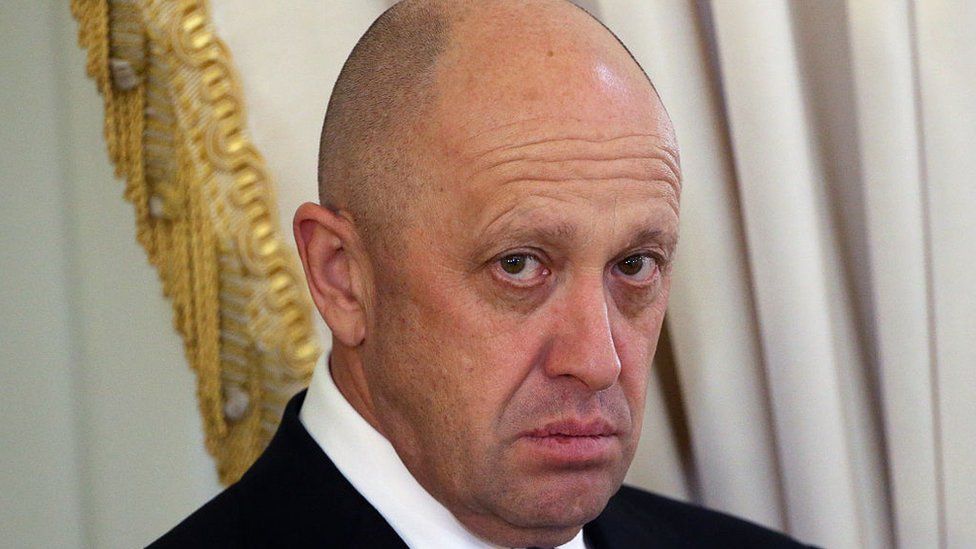Yevgeny Prigozhin has started a rebellion inside of Russia, ordering his own army of mercenaries to seize important military facilities following weeks of growingly critical outbursts against the military leadership of Russia.
Prigozhin, the head of the Wagner Group, became a crucial figure in 2022's full-scale Russian invasion of Ukraine. In crucial battlegrounds, such as Bakhmut, Russian forces were led by Wagner fighters.
As the fighting raged on, he grew more and more critical of Russia's top military leaders for what he perceived as a futile effort to carry out the objectives of the so-called "special military operation" in Ukraine.
He held back from blaming Russian President Vladimir Putin, with whom he had previously had a close relationship.
How then did a man of dubious origins come to wield such power, develop a reputation for fearsome brutality, and rise to become the head of a Russian internal uprising?
Vladimir Putin's hometown of St. Petersburg is where Yevgeny Prigozhin is from.
At the age of just 18, he was convicted of his first crime in 1979 and received a two-and-a-half-year sentence with a suspended sentence for theft. Two years later, he was found guilty of robbery and theft and given a 13-year prison term, of which he served nine.
Prigozhin opened a network of hot dog stands in St. Petersburg after being released from prison. Business prospered, and in the tumultuous 1990s, Prigozhin was soon able to launch pricey eateries in the city.
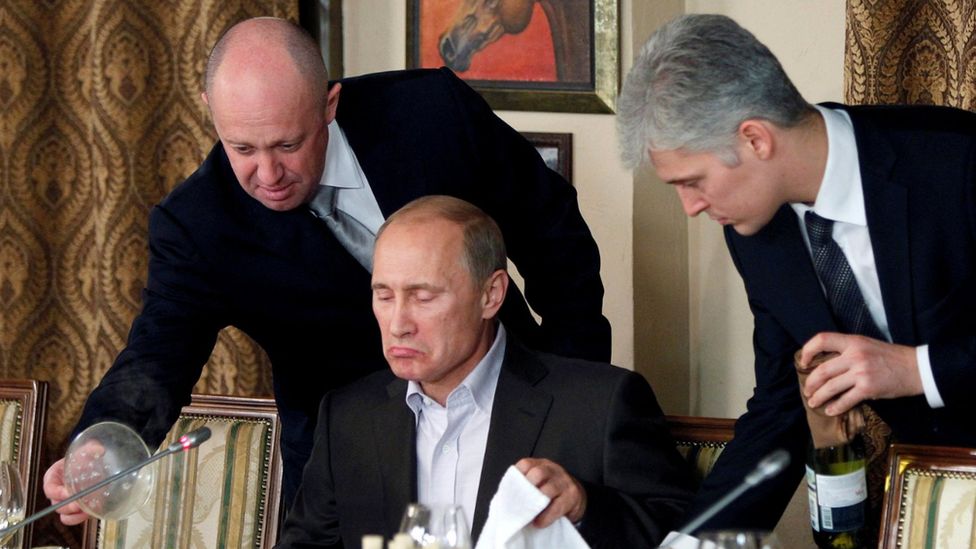
He started socializing with the wealthy and powerful of St. Petersburg and later Russia there. One of his establishments, New Island, was a vessel that traveled up and down the Neva River. After becoming president, Vladimir Putin began taking his foreign guests there because he loved it so much. And that's probably how they first crossed paths.
Prigozhin stated in an interview that "Vladimir Putin saw that I had no problem serving plates to dignitaries in person.". "We first spoke when he arrived in Japan with Prime Minister Mori. " .
In April 2000, right at the start of Vladimir Putin's administration, Yoshiro Mori paid a visit to St. Petersburg.
Mr. Putin had enough faith in Prigozhin for him to spend his birthday on New Island in 2003.
Years later, when Prigozhin's catering business Concord was hired to provide food for the Kremlin, he gained the moniker "Putin's chef.". Military and government-run schools also awarded lucrative catering contracts to companies connected to Prigozhin.
But indications that Prigozhin was not your typical businessman only started to surface after Russia's invasion of Ukraine in 2014. The first reports of Ukrainian forces engaged in combat in the eastern Donbas region came from an enigmatic private military firm allegedly connected to him.
Its common name, Wagner, was inspired by one of its important early commanders' call sign. He reportedly found Nazi Germany fascinating because it used the works of the composer from the 19th century for propaganda.
Ironically, President Putin's full-scale invasion of Ukraine, which began in February 2022, has "de-Nazification" of Ukraine as one of its primary declared goals.
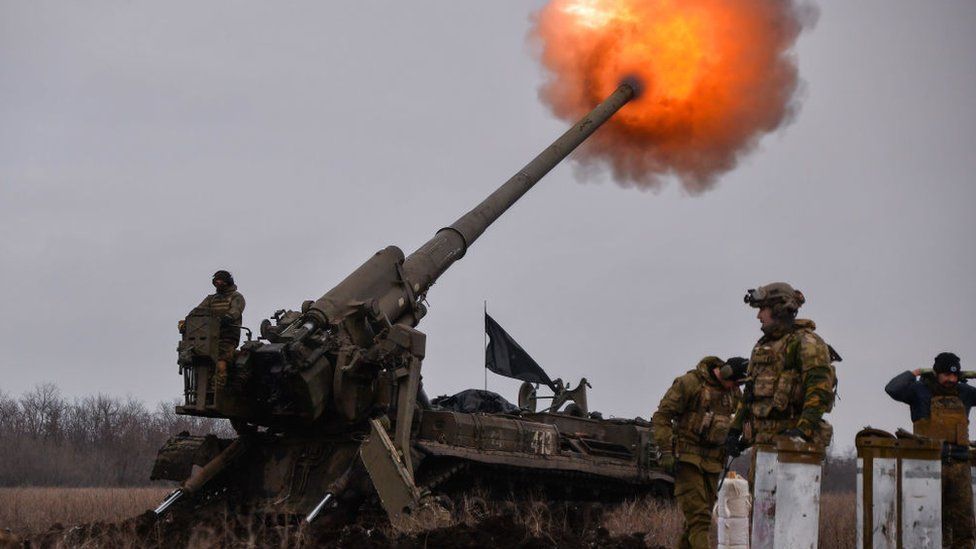
In addition to the Ukraine, Wagner was active in Africa and other parts of the world, consistently carrying out tasks that aided the Russian government's objectives, such as supporting Bashar al-Assad's regime in Syria and thwarting French influence in Mali.
The mercenary group built up a fearsome reputation for brutality over time.
In 2017, Wagner members are allegedly responsible for beheading, burning, and torturing a Syrian prisoner with a sledgehammer.
The next year, three Russian journalists who were looking into Wagner's presence in the Central African Republic were killed.
Due to allegations that he had "betrayed" the organization in Ukraine, Wagner was once more charged in 2022 with murder by sledgehammer. Unverified video of the brutal killing was dubbed "a dog's death for a dog" by Prigozhin. He claimed he had sent the politicians a blood-stained sledgehammer after members of the European Parliament demanded that Wagner be labeled as a terrorist organization.
For years, Prigozhin insisted he had no connections to Wagner and even filed lawsuits against those who made the assertion. But then, in September 2022, he claimed to have founded the organization in 2014.
Wagner has been subject to sanctions from the US, EU, and UK, but is still permitted to operate in Russia despite the fact that mercenary work is prohibited by law.
Instead of using men with guns, Yevgeny Prigozhin also used people with keyboards to get involved in international politics.
He has long been charged with running "troll farms" or "bot factories," which employed online personas to spread Kremlin-friendly messages. The Internet Research Agency (IRA), based in St. Petersburg, was in charge of these initiatives. This organization is best known for its interference in the 2016 US presidential election.
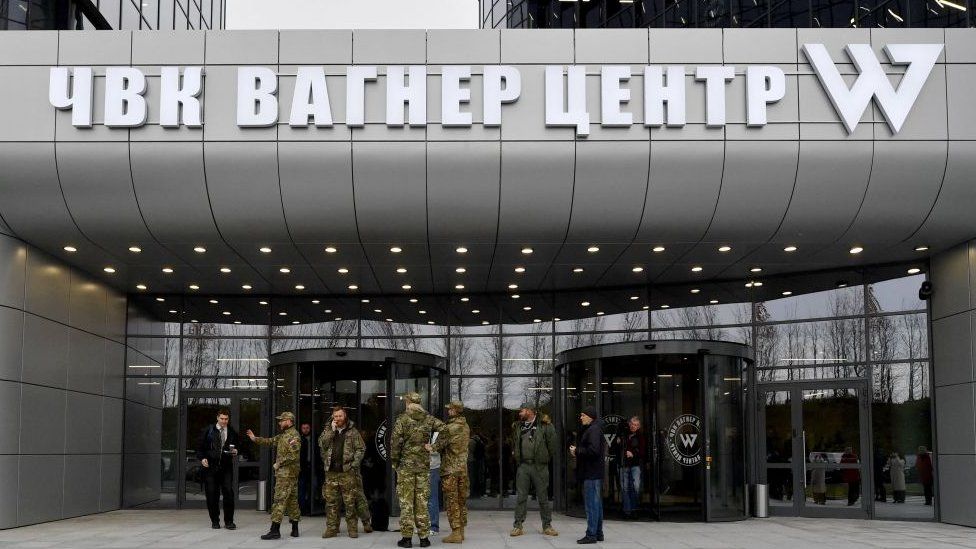
The former FBI director Robert Mueller came to the conclusion that the IRA ran a social media campaign intended to incite and amplify political and social unrest in the US. Mueller was appointed to look into allegations of collusion between Donald Trump's campaign and Russia. It later transformed into a campaign to back Mr. Trump and disparage his opponent, Hillary Clinton, according to Mueller's report.
The US attempted to interfere in the 2018 midterm elections before imposing sanctions on the IRA and Prigozhin personally for interfering in the 2016 presidential election.
The UK claims that "cyber-soldiers" with possible ties to Prigozhin have attacked nations such as the UK, South Africa, and India. Ukraine is another important target of the IRA's disinformation campaigns.
In February 2023, Prigozhin asserted that he had "conceived, created, and run" the IRA, just as Wagner had done after denying any involvement and suing those who claimed he was behind troll factories and bot farms.
However, why would the Kremlin hire someone like Prigozhin to run propaganda and military operations around the world?
So-called "plausible deniability" is a significant factor in this. The Russian government can avoid acknowledging involvement in extremely delicate operations by using private operatives.
Journalist Ilya Zhegulev, who has extensively researched Prigozhin's life story, says there are several reasons why Prigozhin wound up in this position.
"He never objected to carrying out immoral acts. In terms of his reputation, he had nothing to lose, claims Zhegulev.
Another factor, he continues, was Prigozhin's past. "Due to their difficulty in being controlled, Putin dislikes people with an impeccable reputation. Prigozhin was the perfect candidate from this perspective. ".
In a rare interview from back in 2011, Prigozhin revealed that he had once written a book for kids in which the protagonist "helped the king save his kingdom" before doing "something truly heroic.".
At first, Prigozhin avoided the spotlight, speaking with the media most often through statements released by his catering business, Concord.
Following the start of Russia's full-scale invasion of Ukraine in February 2022, this changed. Months into the campaign, it was obvious that it was stalling, and Prigozhin's services were once more in high demand.
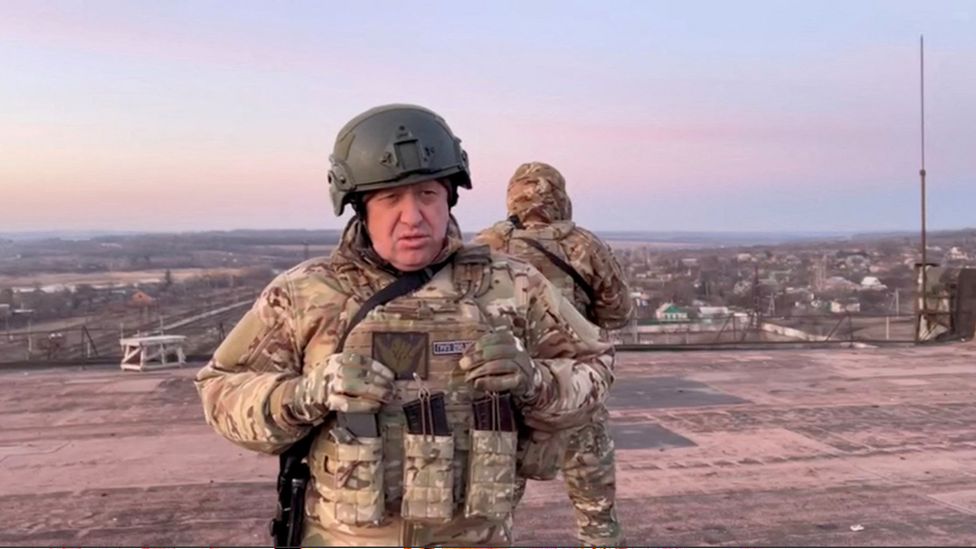
On July 27, 2022, Kremlin-controlled media abruptly acknowledged that Wagner was engaged in combat in eastern Ukraine after years of denying that Wagner even existed.
Additionally, Prigozhin began bragging about Wagner's exploits in social media videos that were ostensibly shot in occupied parts of Ukraine. No other private military company in the world at the time had access to as much equipment, which included fighter jets, helicopters, and tanks.
Prigozhin was permitted to recruit in prisons after tens of thousands of Russian soldiers were killed in Ukraine. He made personal trips to many prisons to assure prisoners that, if they survived six months of fighting for Wagner in Ukraine, they would be able to return home free and with their convictions overturned.
However, Prigozhin's criticism of Russia's military leadership increased as its invasion failed.
Beginning in early 2023, he was prohibited from hiring any more prisoners as his relationships with the defense ministry deteriorated.
He repeatedly asserted that the defense ministry deprived Wagner of ammunition; at one point, he even charged treason against Chief of the General Staff Valery Gerasimov and Defence Minister Sergei Shoigu.
In June 2023, after accusing Moscow of attacking a Wagner base in Ukraine, Prigozhin's increasingly strident criticism escalated into a physical altercation.
Then, from occupied Ukrainian territory, his Wagner fighters entered Russian territory and seized vital military facilities in Rostov, a city close to the border in southern Russia.
Prigozhin was charged with inciting an armed insurrection in Russia, and President Putin referred to his actions as "treason."

